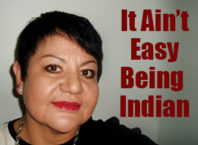Getting the medicines you need from your clinic
Medication is an important part of keeping healthy for many people. Having access to needed medication is a big part of ending health disparities in this community.
See your medical provider and have an examination- every year! It is important to find out how you are doing- get screened for diseases, see if your blood pressure, your blood tests, your hearing, and your kidneys are ok. Our bodies change over time, and even if everything was great last year, it’s important to see how things are this year.
If your provider says that some medication will be helpful to you, it is very important that both you and your provider handle your prescriptions in a responsible way to be sure you are getting what you need.
The following steps can help you with your prescription medications:
- What you take now – Let your provider knows what medications you are already on (keep a list in your wallet if you can’t remember), including medicine you got from another clinic, hospital or ER. This also includes any herbal supplements you may be taking.
- History of reactions – Tell your provider if you have had bad reactions to any medicine in the past
- Insurance – Discuss whether or not you have insurance so that the provider can figure out how you can get this medicine (have you registered at Mashkiki Pharmacy?) In addition, some insurance companies make it difficult to order specific medication and the clinic may need to fill out special paperwork to be able to order it.
- Ask about your prescription – Ask your provider what this medicine is supposed to do. Ask about side effects you may need to watch for. Ask if that medicine might effect how some of your other medicines work.
- Take your medicine properly – Take the medicine exactly the way the provider prescribed it- and for all the days it was prescribed (unless you have a bad side effect)
- Side Effects – If you do have a bad side effect, call the provider right away to see what else you can take. Be sure you get a different medication prescribed for you.
- ***Calling for refills – If you are running out of regular medicine, don’t wait until you are out of medicine to call for refills. Call a week or so before you run out! When a person calls about their prescription, the message goes to the nurse voice mail, then the nurse (when she has some time) listens to the message and writes your request down. Then she gives it to the medical records person. The medical records person pulls your chart and puts it on the provider’s desk. When the provider has time to go through the stack of 20 or more charts on their desk (after they have seen patients for the day), they see your request, and write the order for the medicine. The request goes back to the nurses, and they call the pharmacy. This takes time- so if you call a week early, it’ll be done by the time you need it!
- Pain Medication – long-term narcotics are not the medically-appropriate way to handle most chronic pain. When a request for narcotics is denied, you should be offered referrals for other medication, physical therapy, and chronic pain treatment centers.
- Clinic rechecks – Most conditions which require medication also need frequent rechecks for you at the clinic. Don’t be surprised if you are notified that you need to come in for a recheck before you get your next refill. It is important to find out if the medication is helping or not, if you are on the right dose, or if your condition requires new or added medicine. It can be a hassle to come in to the clinic so often, but that is the responsible way to monitor your health.
Health maintenance is an important responsibility for every person. Don’t be afraid to ask your medical provider and your pharmacist questions about your prescriptions. It can be difficult to get enough time for much discussion; if there isn’t enough time to get all your questions handled in one clinic visit, ask for another time to finish your conversation (by phone or another visit). It’s your body, and your health. You and your medical provider can work together to keep you healthy and get you the medication you need.
—–
The Doctors at NACC welcome comments and ideas about health disparities for upcoming articles. Send to: NACC, 1213 E. Franklin Ave., Mpls., MN 55404. 612-872-8086





